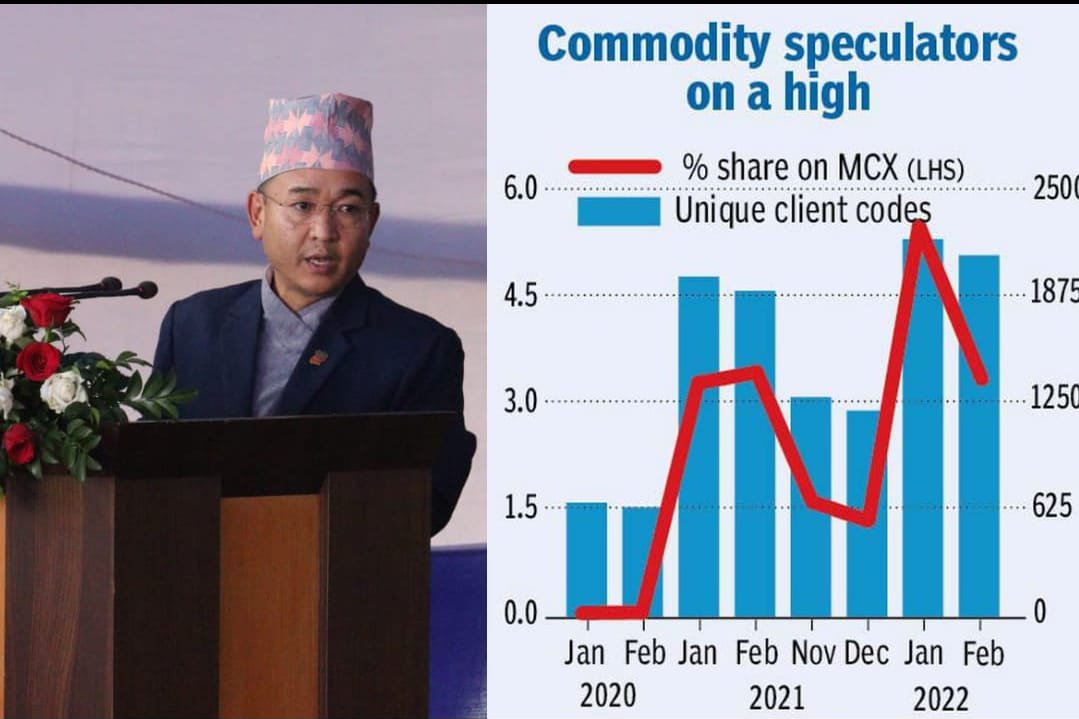After an exclusive news report by The Hindu BusinessLine highlighted how the tax exemption granted to Sikkim domiciled residents was being misused by commodity market speculators, Sikkim faced a lot of scrutiny and the issue was rendered a burning topic not only in the state but in the nation. Chief Minister Prem Singh Tamang ordered a high level probe into commodity trading on the Multi Commodity Exchange (MCX) from the State.
The issue highlighted how just around 2,200 traders from Sikkim have churned commodity trades worth more than $6 billion in February alone. Reacting to it, the CM said he suspected that traders from other States could be using Sikkim residents as a front, hence ordering the State vigilance department to investigate into the scam. Commodity speculation on MCX attracts 30 per cent income tax but since Sikkim residents enjoy exemption from India’s IT Act, they were being used by traders from other States.
Now, a report by BusinessLine have said that an email might have triggered the massive rise in MCX volumes from Sikkim. It was reported that the Sikkim government could have also lost out on huge stamp duty linked revenues from the MCX trades that originated from the State in past two years. Data show that Sikkim linked volumes on MCX mainly started witnessing a sharp jump since the middle of 2020 after the exchange issued a circular related to stamp duty collection. The MCX circular was based on communication from the Ministry of Finance to market regulator SEBI, which in turn was triggered by just one email from a Sikkim government department. Stamp duty of ₹2 per lakh on commodity futures (sale) turnover and ₹3 per lakh on options premium (sale) turnover is applicable on the MCX. The exchange has to collect it from the traders, which is then passed on to the respective states. But on August 19, 2020, MCX declared that the exchange will refund the stamp duty it had collected since July that year from Sikkim based traders to the respective brokers and clients. Further, MCX also said that it would not charge any stamp duty to traders from Sikkim until specific instructions were received from the state or the MoF. Virtually, the circular by MCX gave an exemption from stamp duty to Sikkim-based traders.
The MCX circular attached a copy of communication dated August 19, from a deputy secretary in the Department of Economic Affairs in MoF to then SEBI chairman Ajay Tyagi and Reserve Bank of India’s deputy governor MD Patra. The communication said that the department had received an email dated July 7, 2020 from the revenue / finance department of Sikkim stating that the Indian Stamp Duty Act, 1899 was not yet extended to Sikkim as the state had its own stamp act (Sikkim Court Fee and Stamps on Documents Rules, 1928).
“Accordingly, RBI and SEBI are requested to direct the collecting agents, under their respective jurisdictions, not to collect the stamp duty for the state of Sikkim till further communication from this department and refund the stamp duty collected so far since July 1, 2020 in respect of Sikkim and to the concerned from whom the stamp duty has been collected,” the DEA communication to SEBI said.
Hence, the sources say, that the email and the quick chain reaction that followed turned Sikkim into zero tax base for commodity market speculators and triggered the jump in volumes on MCX. Sources say that it is still not clear if the Sikkim government was in favour of letting go of the stamp duty from the traders. It is likely that the email, the real trigger for the stamp duty loss to Sikkim will be probed, the sources said.
Earlier, SEBI had exempted Sikkim residents from the mandatory PAN requirement for investments in the Indian securities market and mutual funds if they gave a proof of residency to the custodians and exchanges in Mumbai. This laxity of PAN requirement coupled with the stamp duty exemption has made Sikkim a tax haven for MCX speculators.

